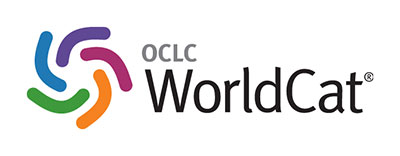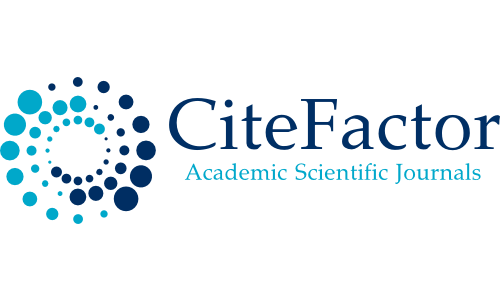Potensi Teh Rosela (Hibiscus sabdariffa) dan Daun Sambung Nyawa (Gynura procumbens) sebagai Diet Antiobesitas
DOI:
https://doi.org/10.28932/jmh.v5i2.3835Keywords:
rosela, daun sambung nyawa, antiobesitasAbstract
Menurut WHO pada tahun 2014, lebih dari 1,9 milyar populasi dunia mengalami overweight dan 600 juta di antaranya dengan obesitas. Kondisi ini disebabkan oleh asupan kalori yang melebihi pengeluaran energi disertai berbagai faktor. Modalitas terapi yang ada saat ini terbatas pada diet, farmakoterapi, dan operasi. Tujuan dibuatnya literature review ini yaitu menemukan tanaman obat yang berpotensi sebagai antiobesitas. Studi ini menggunakan metode tinjauan pustaka dengan mengumpulkan sumber dari literatur ilmiah seperti WHO, PubMed, dan Google Scholar. Ekstrak Hibiscus sabdariffa ditemukan dapat menurunkan oxysterols dan meningkatkan ekskresi asam palmitat di feses yang penting dalam mengontrol glukosa dan lemak. Ekstrak ini menginhibisi SREBP-1c, PPARγ, lipase pankreas, serta ekspresi PPARγ dan C/EBPα. Ekstrak Gynura procumbens mampu menurunkan pembentukan LDL sehingga berefek terhadap kolesterol dan lemak lain serta memiliki efek kardioprotektif. Ekstrak ini dapat meningkatkan ekspresi gen PPAR-α yang meningkatkan oksidasi asam lemak dan menginduksi aktivitas lipoprotein lipase. Teh rosela dibuat baik dengan metode infusi, decoction, maupun maserasi. Teh daun sambung nyawa dikonstruksi melalui deaktivasi enzim primer dan sekunder, rolling, pembekuan, serta vacuum freeze-drying. Kombinasi keduanya akan dibuat menjadi bentuk teh, kemudian diadministrasikan secara peroral. Disimpulkan bahwa, kombinasi teh rosela dan daun sambung nyawa mengandung senyawa antiobesitas yang berpotensi sebagai terapi untuk penderita obesitas.Downloads
References
Semlitsch T, Stigler FL, Jeitler K, Horvath K, Siebenhofer A. Management of overweight and obesity in primary care A systematic overview of international evidence-based guidelines. Obes Rev. 2019;20:1218–30.
Olszewska M, Groth D, Szczerbinski L, Siewiec E, Puchta U, Wojciak P, et al. Epidemiology and pathogenesis of obesity. Post N Med. 2018;31(2):102–5.
Aktar N, Qureshi NK, and Ferdous HS. Obesity: A review of pathogenesis and management strategies. Delta Med Col J. 2017;5(1):35–48.
Rachmi CN, Li M, Baur LA. Overweight and obesity in Indonesia: prevalence and risk factors a literature review. Public Health. 2017;147:20–9.
Badan Penelitian dan Pengembangan Kesehatan. Riset Kesehatan Dasar (Riskesdas) 2013. 2013.
Harbuwono DS, Pramono LA, Yunir E, Subekti I. Obesity and central obesity in indonesia: Evidence from a national health survey. Med J Indones. 2018;27(2):114–20.
Bora K. Obesity : Causes and Consequences. BIONE. 2017;1(1):1-6.
Fruh SM. Obesity: Risk factors, complications, and strategies for sustainable long-term weight management. J Am Assoc Nurse Pract. 2017;29:S3–14.
Ruban A, Stoenchev K, Ashrafian H, Teare J. Current treatments for obesity. Clin Med (Northfield Il). 2019;19(3):205–12.
Ojulari OV, Lee SG, and Nam J. Review : Beneficial Effects of Natural Bioactive Compounds from Hibiscus sabdariffa L. on Obesity. Molecules. 2019;24(210):1-14
Hew CS and Gam LH. Proteome Analysis of Abundant Proteins Extracted from the Leaf of Gynura procumbens (Lour.) Merr. Appl. Biochem. Biotech. 2011;165(7-8):1577–86.
Aziz Z, Wong SY, Chong NJ. Effects of Hibiscus sabdariffa L. on serum lipids: A systematic review and meta-analysis. J. Ethnopharmacol. 2013;150:442–50.
Ojulari, OV, Lee, SG, and Nam, J. Review : Beneficial Effects of Natural Bioactive Compounds from Hibiscus sabdariffa L. on Obesity. Molecules. 2019. 24(210): 1-14
Alarcon-Aguilar FJ, Zamilpa A, Perez-Garcia MD, Almanza-Perez JC, Romero-Nunez E, Campos-Sepulveda EA, Vazquez-Carrillo LI, and Roman-Ramos R. Effect of Hibiscus sabdariffa on obesity in MSG mice. J. Ethnopharmacol. 2007; 114(1):66–71.
Villalpando-Arteaga EV, Mendieta-Condado E, Esquivel-Solis H, Canales-Aguirre AA, Galvez-Gastelum FJ, Mateos-Diaz JC, Rodriguez-Gonzalez JA, Marquez-Aguirre AL. Hibiscus sabdariffa L. aqueous extract attenuates hepatic steatosis through down-regulation of PPAR-gamma and SREBP-1c in diet-induced obese mice. Food Funct. 2013; 4: 618–26.
Hew CS, Gam LH. Proteome Analysis of Abundant Proteins Extracted from the Leaf of Gynura procumbens (Lour.) Merr. Appl Biochem Biotechnol. 2011; 165(7-8): 1577–86.
Sudarsono, Gunawan D, Wahyuono S, Donatus IA, dan Purnomo. Tumbuhan Obat II, Hasil Penelitian, Sifat-sifat dan Penggunaan, 2002: 96-100. Pusat Studi Obat Tradisional, Universitas Gadjah Mada, Yogyakarta.
Mou KM, Dash PR. A Comprehensive Review on Gynura Procumbens Leaves. Int J Pharmacognosy. 2016; 3(4): 167-74.
Birari RB, Bhutani KK. Pancreatic Lipase Inhibitors from Natural Sources: unexplored potential. Drug Disc Today. 2007; 12(19/20): 879-89.
Crosignani A, Zuin M, Allocca M, Del Puppo M. Oxysterols in bile acid metabolism. Clin Chim Acta. 2011; 412: 2037–45.
Liu JY, Chen CC, Wang WH, Hsu JD, Yang MY, Wang CJ. The protective effects of Hibiscus sabdariffa extract on CCl4-induced liver fibrosis in rats. Food Chem. Toxicol. 2006;44: 336–43.
Chang HC, Peng CH, Yeh DM, Kao ES, Wang CJ. Hibiscus sabdariffa extract inhibits obesity and fat accumulation, and improves liver steatosis in humans. Food Funct. 2014, 5, 734–9.
Hursel R, Westerterp-Plantenga MS. Thermogenic ingredients and body weight regulation. Int J Obes. 2010;34: 659–69.
Farmer SR. Regulation of PPARgamma activity during adipogenesis. Int. J. Obes. 2005, 29, S13–6.
Kim MS, Kim JK, Kim HJ, Moon SR, Shin BC, Park KW, et al. Hibiscus extract inhibits the lipid droplet accumulation and adipogenic transcription factors expression of 3T3-L1 preadipocytes. J Alter Complem Med. 2003;9:499–504.
Kim JK, So H, Youn MJ, Kim HJ, Kim Y, Park C, Kim SJ, Ha YA, Chai KY, Kim SM, et al. Hibiscus sabdariffa L. water extract inhibits the adipocyte differentiation through the PI3-K and MAPK pathway. J Ethnopharmacol. 2007, 114, 260–67.
Herranz-Lopez M, Fernandez-Arroyo S, Perez-Sanchez A, Barrajon-Catalan E, Beltran-Debon R, Menendez JA et al. Synergism of plant-derived polyphenols in adipogenesis: Perspectives and implications. Phytomed. 2012; 19: 253–61.
Liu WY, Yu R, Yang C, Wan B, Xu, Cao S. Optimization of total flavonoid compound extraction from gynura medica leaf using response surface methodology and chemical composition analysis. Int J Mol Sci. 2010; 11(11): 4750-63.
Afonso MS, De O Silva ME, Carvalho EB, Rivelli DP, Barros SB, Rogero MM, Lottenberg AM, Torres RP, Mancini-Filho J. Phenolic compounds from rosemary (Rosmarinus officinalis L.) attenuate oxidative stress and reduce blood cholesterol concentrations in diet-induced hypercholesterolemic rats. Nutr Metab. 2013; 10(1): 19.
Rosidah M, Yam A, Sadikun, and Asmawi M. Antioxidant potential of Gynura procumbens. Pharmaceut Biol. 2008; 46(9): 616–25.
Nazri KAA, Fauzi NM, Buang F, Saad QHM, Husain S, Jantan I, et al. Gynura procumbens Standardised Extract Reduces Cholesterol Levels and Modulates Oxidative Status in Postmenopausal Rats Fed with Cholesterol Diet Enriched with Repeatedly Heated Palm Oil. Evid B Complem Alter Med. 2019;1-15.
Shimoda HE, Seki, and Aitani M. Inhibitory effect of green coffee bean extract on fat accumulation and body weight gain in mice. BMC Complem Alter Med. 2006; 6(1): 9.
Wan CW, Wong CNY, Pin WK, Wong MHY, Kwok CY, Chan RYK, Yu PHF, Chan SW. Chlorogenic acid exhibits cholesterol lowering and fatty liver attenuating properties by up-regulating the gene expression of PPAR-alpha in hypercholesterolemic rats induced with a high-cholesterol diet. Phytother Res.2013; 27(4): 545–551.
Rasheed D, Porzel A, Frolov A, El Seedi HR, Wessjohann LA, Farag MA. Comparative analysis of Hibiscus sabdariffa (roselle) hot and cold extracts in respect to their potential for alpha-glucosidase inhibition. Food Chem. 2018;250:236-44.
Martins N, Barros L, Santos-Buelga C, Silva S, Henriques M, Ferreira ICFR. Decoction, infusion, and hydroalcoholic extract of cultivated thyme: antioxidant and antibacterial activities, and phenolic characterisation. Food Chem. 2014;167:131-7
Liao W, Ling H, She X, Yuan D. Gynura procumbens Health Tea. CN. Patent No. 104171188A. Beijing: State Intellectual Property Office of the P.R.C. 2014.
Yongchun T. Gynura procumbens tea. CN. Patent No. 105876000A. Beijing: State Intellectual Property Office of the P.R.C. 2015.
Zhang XF and Tan BK. Effects of an Ethanolic Extract of Gynura procumbens on Serum Glucose, Cholesterol and Triglyceride Levels in Normal and Streptozotocin-Induced Diabetic Rats. Singapore Med. J. 2000; 41(1): 9-13.
Astuti YP, Utami NV, Rostini T. Efek Ekstrak Etanol Daun Gynura procumbens dalam Menghambat Peningkatan Kadar Trigliserida Tikus Model Hipertrigliseridemia. Acta Pharm Indones. 2014; 39(1&2): 1-6.
Downloads
Published
How to Cite
Issue
Section
License
Copyright (c) 2023 Putu ISL Dewi, Kadek MN Pamungkas, Erick K Tandiono

This work is licensed under a Creative Commons Attribution-NonCommercial 4.0 International License.
Authors who publish with this journal agree to the following terms:
- Authors retain the copyright and grant the journal right of first publication with the work
simultaneously licensed under a Creative Commons Attribution-NonCommercial 4.0 International License that allows others to share the work with an acknowledgement of the work's authorship and initial publication in this journal. - Authors are able to enter into separate, additional contractual arrangements for the nonexclusive distribution of the journal's published version of the work (e.g., post it to an institutional repository or publish it in a book), with an acknowledgement of its initial publication in this journal.
 This work is licensed under a Creative Commons Attribution-NonCommercial 4.0 International License.
This work is licensed under a Creative Commons Attribution-NonCommercial 4.0 International License.

















